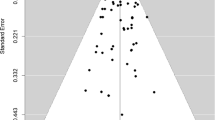Abstract
A variety of recent arguments emerging from behavioural economics claim to undermine the credibility, and even the conceptual coherence, of the economist’s traditional rejection of paternalism. Indeed, some suggest that the incoherent nature of preferences inevitably implies a form of paternalism, since some basis for officiating between expressed preferences is required, and some preferences will be over-ridden in favour of others. This paper reviews and contests these arguments. It argues that markets operate according to a normatively defensible and non-paternalistic principle of mutual advantage, and that this principle does not require preferences to be coherent.
Similar content being viewed by others
References
Bernheim, D., & Rangel, A. (2007). Toward choice-theoretic foundations for behavioral welfare economics. Discussion paper, Resources for the Future, Washington, D.C.
Buchanan, J. M. (1968). The demand and supply of public goods. Chicago: Rand McNally.
Camerer, C., Issacharoff, S., Loewenstein, G., O’Donaghue, T., & Rabin, M. (2003). Regulation for conservatives: Behavioral economics and the case for ‘asymmetric paternalism’. University of Pennsylvania Law Review, 151, 1211–1254.
Hayek, F. A. (1945). The use of knowledge in society. American Economic Review, 35, 519–530. Page references to the reprinted version in Friedrich Hayek. (1948). Individualism and economic order. Chicago University Press.
Nagel, T. (1986). The view from nowhere. Oxford: Oxford University Press.
Savage, L. J. (1954). The foundations of statistics. New York: Wiley.
Schelling, T. (1978). Egonomics, or the art of self-management. American Economic Review, Papers and Proceedings, 74, 1–11.
Scitovsky, T. (1976). The joyless economy: The psychology of human satisfaction. Oxford: Oxford University Press.
Sugden, R. (2004). The opportunity criterion: Consumer sovereignty without the assumption of coherent preferences. American Economic Review, 94(September 2004), 1014–1033.
Sugden, R. (2007). The value of opportunities over time when preferences are unstable. Social Choice and Welfare, 29, 665–682.
Sunstein, C., & Thaler, R. (2003a). Libertarian paternalism. American Economic Review, Papers and Proceedings, 93(2), 175–179.
Sunstein, C., & Thaler, R. (2003b). Libertarian paternalism is not an oxymoron. University of Chicago Law Review, 70, 1159–1202.
Tversky, A., & Kahneman, D. (1991). Loss aversion in riskless choice: A reference-dependent model. Quarterly Journal of Economics, 106, 1039–1061.
Wicksell, K. (1896/1958). A new principle of just taxation. In R. Musgrave & A. Peacock (Eds.), Classics in the theory of public finance. London: Macmillan. Original publication in German.
Acknowledgements
I thank Ben McQuillin and Richard Thaler for comments on previous versions of this paper. My work has been supported by the Economic and Social Research Council of the UK (award no. RES 051 27 0146).
Author information
Authors and Affiliations
Corresponding author
Rights and permissions
About this article
Cite this article
Sugden, R. Why incoherent preferences do not justify paternalism. Const Polit Econ 19, 226–248 (2008). https://doi.org/10.1007/s10602-008-9043-7
Published:
Issue Date:
DOI: https://doi.org/10.1007/s10602-008-9043-7



